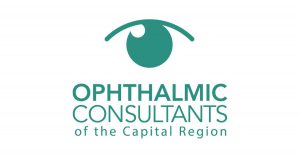All About Eyes: Ask an Ophthalmologist

By Allen W. Zieker, M.D.
Q. I need to have cataract surgery. I’m farsighted and currently wear glasses. Is it possible to have my vision corrected during cataract surgery so that I no longer have to wear glasses?
A. The recent FDA approval of the TECNIS® Symfony Intraocular Lens (IOL) is great news for people with both cataracts and farsighted vision. According to the manufacturer, the Symfony lens is the first extended range of vision IOL to correct presbyopia and improve vision in people with cataracts. The Symfony IOL is designed to correct far, intermediate, and near vision, decreasing the need for glasses or contact lenses for the majority of patients.
The Symfony lens is implanted into the eye during a normal cataract operation. In most cases recovery time is minimal, with patients able to return to their usual routine just 24 hours after surgery. Unlike traditional multifocal lenses, there is a low incidence of glare or halos with the Symfony lens.
I was one of the first cataract surgeons in the United States to implant the new Symfony IOL. Both my patients and I are very happy with the results. I would highly recommend that you have a cataract consultation with a surgeon who is experienced at implanting all types of IOLs.
Q. I have glaucoma. At my last eye exam appointment, my eye doctor told me I have cataracts. How does having cataracts affect my glaucoma treatment?
A. Glaucoma is a progressive disease that damages the optic nerve due to pressure inside the eye that is too high for that eye. Left untreated, glaucoma deteriorates vision and can lead to blindness.
The standard therapies are eye drops, laser treatment, and surgery to either reduce fluid production or increase outflow. If you’re taking eye drops, you could continue this treatment if it’s found sufficient to control your glaucoma. However, new alternatives, now being offered at Ophthalmic Consultants of the Capital Region, are the iStent®, a tiny titanium device implanted during cataract surgery that acts like a miniature drainage system to drain the fluid.
The iStent® offers significant potential benefits for people with mild to moderate glaucoma. In a recent clinical study, 72% of patients who received the iStent® remained medication free after 12 months.
The iStent® is minimally invasive, avoiding the risks associated with traditional major glaucoma surgery, and they add only a few minutes to cataract surgery. I also use special intraocular lenses (IOLs) that work well for glaucoma patients. If you have glaucoma and cataracts, it’s important to see a glaucoma specialist who is experienced in treating glaucoma and cataracts with advanced technology.
About Dr. Allen W. Zieker
Dr. Allen Zieker is president and director of cataract surgery at Ophthalmic Consultants of the Capital Region and medical director of the Albany Regional Eye Surgery Center since its inception in 2001. He is a board-certified ophthalmologist with more than 33 years of experience. Working with cataract patients is his passion, performing more than 1,500 cataract procedures every year.
ABOUT OPHTHALMIC CONSULTANTS OF THE CAPITAL REGION
Ophthalmic Consultants of the Capital Region offers a comprehensive model of care with experienced specialists, ophthalmologists, optometrists, and opticians who provide patient-centered eye care to the Albany, Clifton Park, Schenectady, Schodack, and Troy communities.
To make an appointment call 777-2777 or visit myoccr.com.
Other posts about glaucoma and cataracts:
https://ophthalmicconsultants.com/2016/10/13/got-glaucoma-see-specialist/
https://ophthalmicconsultants.com/2016/08/22/introducing-tecnis-symfony-intraocular-lens-iol/
https://ophthalmicconsultants.com/2016/06/21/june-cataract-awareness-month-2/
https://ophthalmicconsultants.com/2015/08/10/what-should-i-know-about-cataract-surgery/




